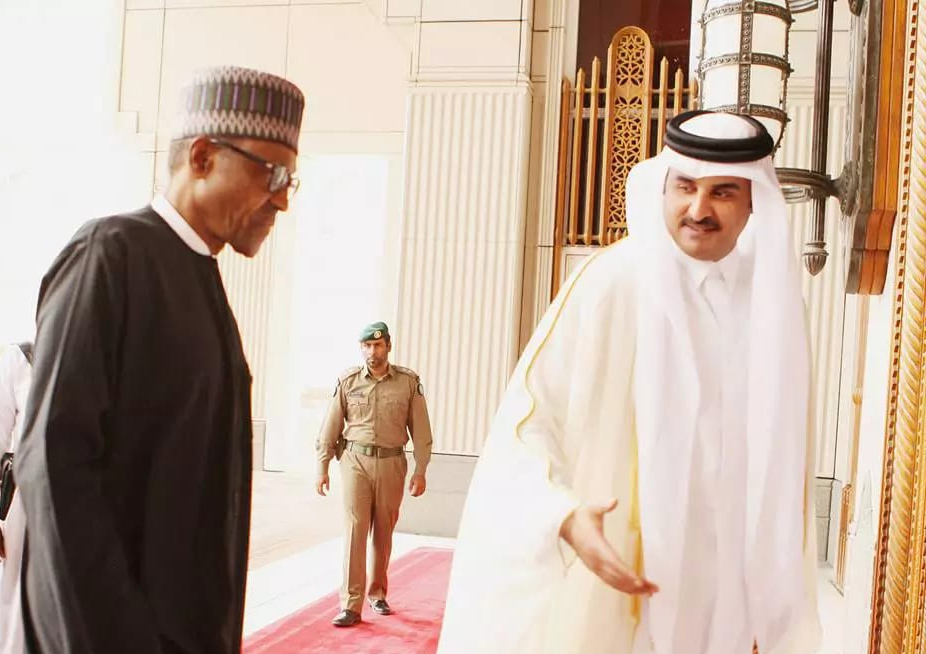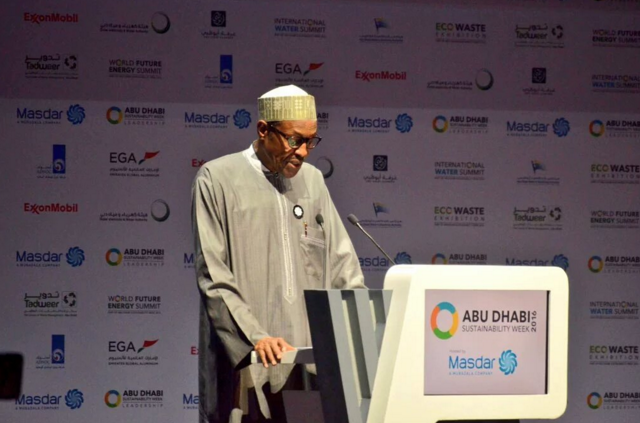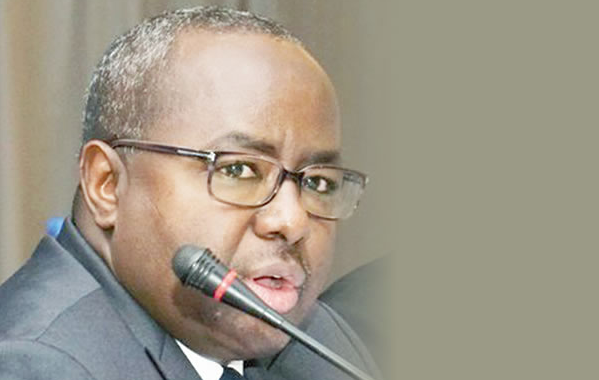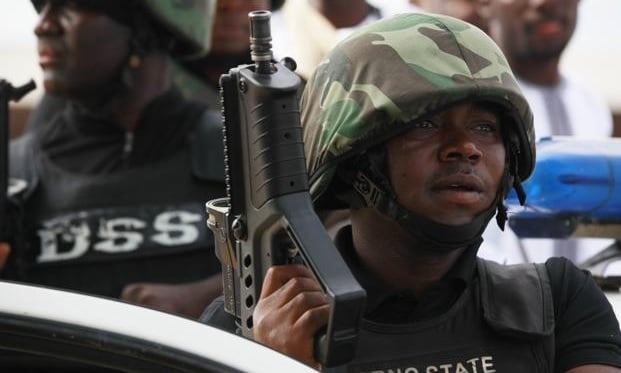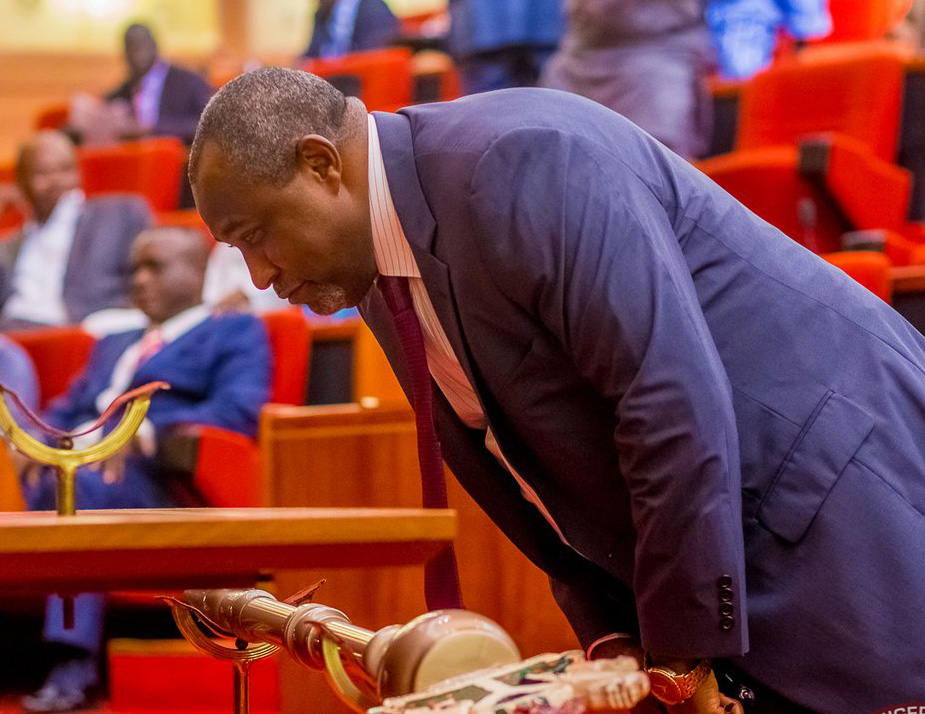It was nice seeing President Muhammadu Buhari in Qatar the other day “toasting” the country’s businessmen to come and invest in Nigeria. “All impediments like delayed processing of permits, multiple taxation, and corrupt practices, would be removed,” he said. It reminds me of how my mates used to chase girls in those teenage years. “For your love, I will swim across the deepest ocean,” they would swoon and croon. For a country that consistently ranks poorly on World Bank’s Ease of Doing Business Index, Nigeria has to do a lot of homework before investors can come rushing in. The global competition for capital is fierce. This is not about sentiments.
I was wondering: if I was a Qatari businessman with a billion dollars to play with, why on earth would I come to invest in Nigeria? All the reports I read about Nigeria are kidnappings, bombings, fuel queues, power cuts, one politician or the other arrested for billion dollar “fraud”, electoral violence, ethnic killings, unemployed and unemployable graduates, and so on and so forth. Why would I come to a country where I have to buy generators and diesel, build my own road and sink my own borehole just to set up a factory? Why can’t I just go and invest in a country where amenities are in place — and all I have to do is just plug in and play?
Well, that’s the way life goes. Problems and opportunities are two sides of the same coin. A problem creates an opportunity to find a solution. Two people will be looking at the same thing: one is seeing problems, the other is seeing opportunities. We had telephone inadequacy. While Vodacom said Nigerians were “too smart” and decided to stay away from us, MTN and Airtel (then called Econet) came. They are now counting their billions in dollars. No power. No roads. No water. Plenty diesel. They invested nonetheless. That a country has challenges is not a death sentence. Nigeria, with a population of 182m and limitless investment opportunities, offers a fantastic return on investment.
Today, I continue with my proposals on the “low-hanging fruits” Buhari can pluck to turn around Nigeria’s economy as oil revenue dwindles. In the first instalment of the series published on December 20, 2015, I argued that Nigeria as an import-dependent country can reap much more revenue from imports: all we need do is thoroughly clean up the ports and watch the coffers balloon with trillions of naira yearly. On January 10, 2016, I made a second suggestion: tax amnesty. I projected that by giving tax evaders a clean sheet to bring them into the tax net, we could see a quantum leap in voluntary compliance — and an astronomical increase in public revenue.
Advertisement
I will now present my third suggestion to Buhari: make life easier for investors. Make investing in Nigeria a pleasure. Investors on ground are already groaning, so we have to swim across the deepest ocean to “toast” new ones. How do we get investors to revive our textile industry? How do we get investors to set up juice-making factories, as millions of mangoes and oranges rot away in Adamawa and Taraba? How do we reduce the distance between Lagos and Kano to four hours by rail — so that export products can get to the ports on time? How do we move goods from Kaiama to Kontagora without police checkpoints obstructing lorries every 100 meters on the highway?
There are, indeed, several investors out there with billions of dollars to play with. The advanced economies do not have a big room for fresh investments. They have matured. The return on investment is relatively low. Their companies and entrepreneurs are looking for fallow grounds to cultivate. There is competition for their attention in several countries, so what are we going to do to get them to pick us as investment destination choice? Furthermore, there are Nigerian entrepreneurs who would love to invest at home, but they are being discouraged or forced to look outside because of the investment climate. How do we address this?
If I was a Qatari businessman, I would be asking myself many questions as Buhari spoke. To start with, getting Nigerian visa is war, no matter how genuine you are. In my little corner, I have had to intervene on several occasions for foreigners who were being frustrated by our embassies. Services at most Nigerian embassies are appalling. Phone calls are unpicked, emails ignored. Yet this is where many foreigners would form their impressions of Nigeria. They arrive at the Murtala Muhammed International Airport, Lagos, and find it hard to know what carousel to go to pick their luggage, as the screen never displays that simple information.
Advertisement
As a potential investor, I would be asking myself about the business registration process in Nigeria. If you want to register a business in the UK, for instance, it takes you 10 seconds to do a name search. Just go to the website of the Company House, type in the proposed name of your business and press “enter”. There you have it. The whole registration process takes an average of 24 hours. You can do everything online. In Nigeria, it used to take a month to do name search and another month to complete the registration — except you were ready to “play ball”. But I understand things are now changing at the Corporate Affairs Commission (CAC). I pray it is for real.
I would also want to know how long it will take me to get the necessary approvals to get my business going. In Nigeria, it could take forever to complete documentation. For instance, the governors hardly want to issue the certificate of occupancy (C of O), thus the capital that could be accessed by businesses are tied down because banks need these documents as collateral for loans. Building permits are not readily issued, and you have all kinds of agencies slowing down the process in the name of regulation — even though we know what most of them are looking for. It could be very frustrating. It kills the spirit. It kills entrepreneurship. It kills the economy.
Buhari assured the Qataris on security — but security is not just about defeating Boko Haram. That is just an aspect. In Nigeria, people are easily kidnapped. Miscreants, in the name of “omo onile”, hold construction workers and investors to ransom so brazenly. A few years ago, a friend was setting up a factory. He bought a transformer (an unnecessary expense) but the miscreants said he must pay them N500,000 “settlement” before they would allow him to install it. This is a complete breakdown of law and order. No civilised society runs like that. Communities and their youths have became a hindrance to investment in many parts of the country.
I would be asking myself more questions as a potential investor: if I have a contractual dispute or trade issue, how quickly can this be resolved? Cases can be in Nigerian courts for years. Adjournment upon adjournment. Some land cases have been at the Supreme Court for 30 years, someone told me recently. I hope it is a lie. I would not be too eager to invest in such a country. I would also be asking myself about the tax system. Is it simplified? Is it reasonable? Would I get incentives? Would I get compensated for generating electricity myself, building my own road and providing my own water? Life could be far easier for investors in Nigeria.
Advertisement
There are several other important issues in the mix, especially for the foreign investors. One is the exchange rate. When you know your $1 billion will only get you $197 billion from the official channel instead of N300 billion from the open market, you will hesitate, especially as the local components of your cost are priced at N300 to a dollar. But I take it that eventually, Buhari will exercise some flexibility as the CBN evaluates the current FX regime. All said, we can’t deny the fact that this economy can use extra billions of investors’ dollars if it is to bounce back to life. A colossal low-hanging fruit is: make life easier for businesses.
AND FOUR OTHER THINGS…
ESE ORURU
It’s tragic that the case of Ese Oruru, the teenager reportedly abducted from Bayelsa and taken to Kano by her “lover”, Yunusa, has been politicised. It should rather offer us an opportunity to unite and tackle the plight of Nigerian minors, especially girls. At 14, Ese was not legally old enough to marry, even if her parents consented. The police unscrupulously failed to act when the Emir of Kano asked them to return Ese to her parents. I have nothing against people changing religion — it happens everyday — but I object to the illegality Yunusa and his cohorts were trying to mask. Exploitation.
AKWA IBOM KIDS
Advertisement
I normally don’t react to rejoinders. This is, therefore, not a rejoinder to a rejoinder. My criticism of Akwa Ibom Governor Udom Emmanuel’s wasteful open-air church service to celebrate his Supreme Court victory incurred the wrath of Mr. Ekerete Udoh, his media aide, who wrote: “Our people are deeply religious, and we sometimes wear our Christian values on our sleeves as badges of honour.” May I humbly implore the “wearers of Christian values” to stop the cruelty being meted out to children who are branded “witches” and routinely dehumanised? It is the very opposite of what Jesus preached about how to treat children. Values.
N5000 DOLE
Advertisement
APC deserves a special medal as Nigeria’s most confused political party ever. Although the PDP was hopeless and rudderless as the ruling party for 16 years, at least its stalwarts did not have to be contradicting one another so shamelessly over party policies. I don’t even know what promises to hold the APC responsible for again. Today, they’ll tell us unemployed Nigerians will get N5000 “dole” per month; tomorrow they’ll deny it. The only excuse I can make for the APC is that it was just an emergency coalition to win an election — it’s not yet a political party. Period.
WAZIRI’S WAR
Advertisement
My joy overflowed when I heard that President Buhari had appointed Waziri Adio as the new executive secretary of the Nigeria Extractive Industries Transparency Initiative (NEITI). I’ve known Waziri for over 26 years, since our days at UNILAG, and I can testify that he is a man of integrity and honour. He is, without doubt, one of the best brains of his generation. Ensuring transparency in the extractive sector is one of the toughest jobs anyone can get in an industry full of buccaneers. But in Buhari, Waziri has a solid backbone to help him carry out his assignment fearlessly. Congrats.
Advertisement
Add a comment

